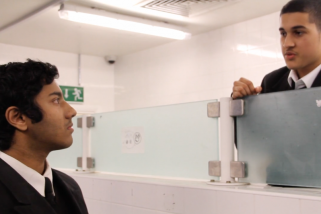This project provides us with an opportunity to explore our own unique spoken language and the way it communicates volumes about our age, nature, culture, and character.
We will be comparing spoken language with the langue of text messaging, bbm and online chat. The variety and creativity of the South London youth dialect is one of the most fast moving and expressive I have ever come across and it represents a brilliant opportunity for us to learn about the inner workings of language.
To follow is a glossary of language devices that will help us to accurately define the features that make the language we study unique. While these terms are helpful in assisting us to define our points clearly – beware of focussing too much on technical terms, as the priority in the final analysis is to demonstrate an appreciation of how the language works, and how people perceive its different registers.


Trackbacks/Pingbacks